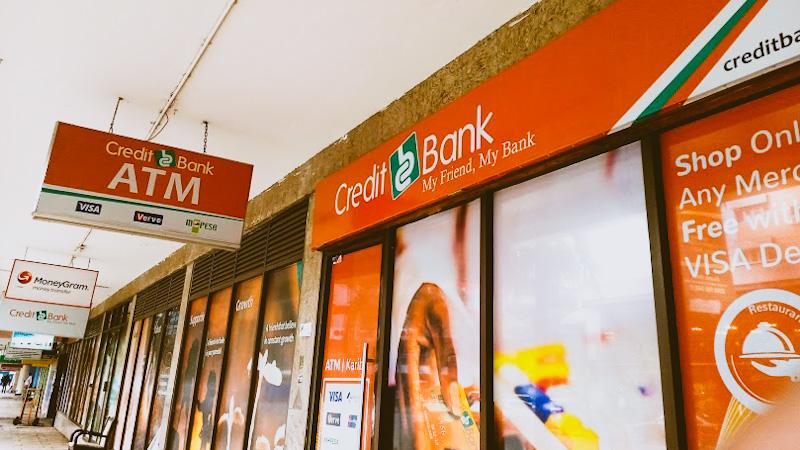Credit Bank is once again in the spotlight, this time over allegations of an illegal land grab in Nairobi’s Loresho area. The controversy paints a worrying picture of how far the bank might be willing to go as it struggles to stay afloat financially.
Despite a clear High Court injunction stopping any transfer or occupation of the disputed property, the bank reportedly went ahead to seize it, raising serious questions about the rule of law and the integrity of Kenya’s financial institutions.
The dispute began when landowners accused Credit Bank of working with officials from the lands registry to unlawfully alter ownership records.
Witnesses said that security guards associated with the bank stormed the property, blocked access, and treated it as if it legally belonged to the lender. Such actions, taken in defiance of court orders, have sparked outrage among affected residents and observers who view this as a blatant show of impunity.
The fact that a licensed financial institution could openly disregard a judicial directive has further damaged public confidence in Kenya’s already fragile banking sector.
At the center of this controversy lies the bank’s worsening financial position. Credit Bank, linked to the family of the late politician Simeon Nyachae, has been under intense pressure to raise capital and manage a growing pile of bad loans.
The lender reportedly needs to raise about Sh1.72 billion before the end of December 2025 to comply with new Central Bank of Kenya (CBK) regulations, which require lenders to maintain at least Sh3 billion in core capital. With current capital standing at just Sh1.28 billion, the shortfall is significant. Compounding the problem, nearly 60 percent of the bank’s loans are non-performing, one of the highest ratios in Kenya’s financial industry.
The strain is evident. PricewaterhouseCoopers auditors have warned that the bank’s losses totaling about Sh2.18 billion pose a serious threat to its ability to continue operating.
Liquidity levels are also low, hovering at 15.1 percent, below the required 20 percent, meaning the bank could struggle to meet withdrawals or fund daily operations.
As a result, analysts believe the lender’s management might be taking aggressive and potentially unlawful steps to recover what they can from borrowers.
Credit Bank’s CEO, Betty Korir, has often spoken about efforts to restructure loans and engage customers in repayment negotiations. However, this latest incident in Loresho suggests a more forceful approach that could end up backfiring legally and reputationally.
Legal experts have already noted that if contempt of court is proven, the bank and its officials could face severe consequences, including fines and criminal sanctions.
The scandal also affects Kenya’s image in the eyes of investors and diaspora clients, many of whom rely on local banks for remittances and property transactions. On social media, anger has been mounting, with users posting under hashtags like #CreditBankExposed, accusing the bank of arrogance and disregard for due process.
Many now question whether the Central Bank’s supervision is strong enough to protect consumers from such rogue behavior by struggling lenders.
Beyond this one incident, the Loresho case exposes the cracks in Kenya’s mid-tier banking sector, where smaller institutions are fighting for survival amid tightening regulations. While some banks have attracted new investors or merged to stay compliant, Credit Bank seems cornered with few lifelines left.





















Add Comment